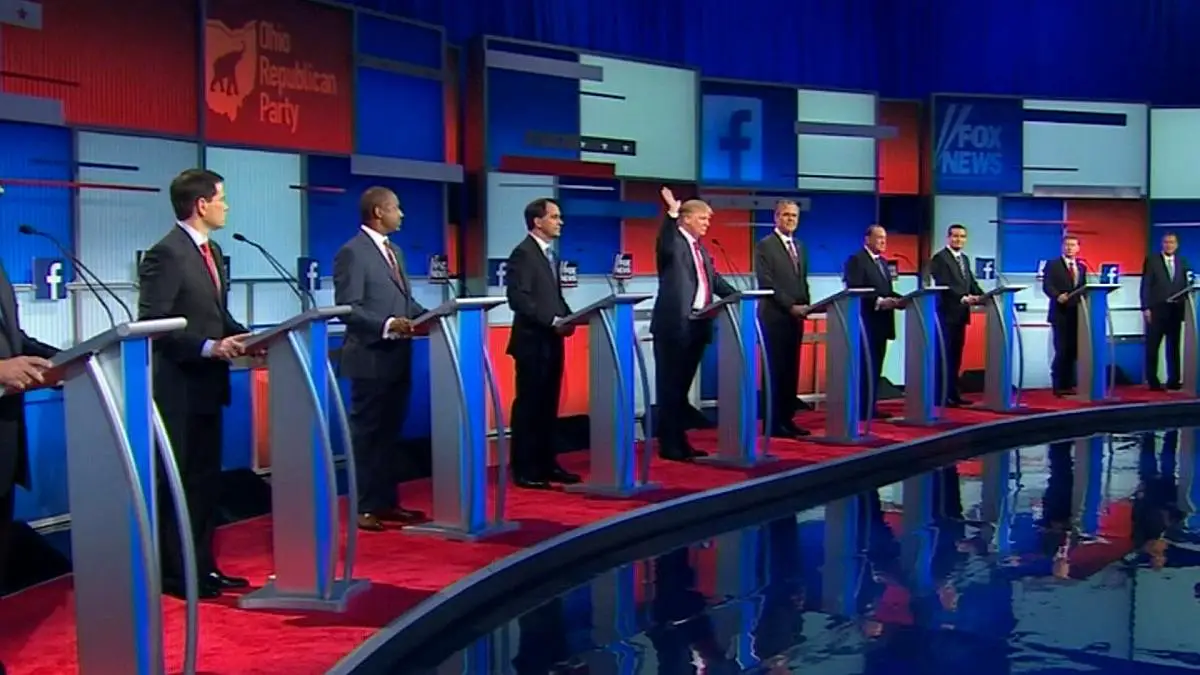The Republican National Committee (RNC) is requiring any candidate standing on the debate stage next week in Milwaukee to have signed a loyalty pledge to support the eventual nominee.
That’s all well and good for most of the participants who chose to go ahead and dutifully sign the pledge. There are two holdouts, however, who have yet to sign.
Former President Donald Trump has stated he will not sign the pledge and has not yet made up his mind whether he will join the debate stage, according to The Hill:
Former President Trump’s refusal to sign the Republican National Committee’s (RNC) loyalty pledge is putting the organization in a bind as next week’s GOP primary debate approaches.
Trump said he wouldn’t sign the pledge last week and is expected to announce in the coming days whether he will attend the event.
RNC chairwoman Ronna McDaniel must now navigate the thorny situation of appeasing Trump — both a ratings draw and the clear front-runner in the primary — while maintaining her control as head of the party.
“It’s a distinct possibility that the Republican nominee for president could simply decide to shun the RNC itself,” said Brian Seitchik, a Republican strategist and Trump campaign alum. “When a candidate refuses to play by the rules, it obviously weakens the RNC’s position.”
What’s surprising is that the RNC put itself in this position knowing full well Donald Trump may or may not play ball since he plays by his own rules. If he wants to rub the RNC’s face in it by refusing to sign the pledge yet still decides to show up expecting to debate, are they going to bar him from entering?
Some have taken Trump’s refusal of the pledge as a sign he has already decided to skip the debate, but that’s probably an unfounded leap.
Flashback to 2015, Trump used the loyalty pledge question as a chance to stand out from the field:
As one YoTube commenter aptly notes, “This is why he won because the others wouldn’t have the balls to raise their hand.”
Down to the essence of Trump’s candidacy, yes, that’s part of why he steamrolled the rest of the field on his way to the nomination and the White House. Standing up and raising his hand on issues the others wouldn’t talk about or tackle without sounding like a Washington politician.
Trying to back Trump into a corner doesn’t usually work since it’s difficult or near impossible to force him to do something he doesn’t want to do or something that takes away his leverage or negotiating power.
In the case of Chris Christie not signing the pledge this year, he says it’s because the RNC forgot about him or failed to ask, one or the other, according to Politico:
Republican presidential candidate Chris Christie said Sunday he has yet to sign the party’s loyalty pledge because no one has given it to him.
“I haven’t been presented with the pledge yet,” the former New Jersey governor said on ABC’s “This Week,” adding he thought the Republican National Committee was still verifying that he had enough donors to qualify for the event. But in answering the question Sunday, Christie did not say whether he would sign the pledge when he received it.
Christie had previously stated back in June that the loyalty pledge was a “useless idea,” in his words, per NBC News:
In an interview on CNN’s “State of the Union,” Christie said “I think the pledge is just a useless idea” when he was asked whether he’d pledge to support Donald Trump, the party’s front-runner, even if the former president is convicted of a felony.
“And by the way, in all my life, we never had to have Republican primary candidates take a pledge,” he said. “You know, we were Republicans. And the idea is you’d support the Republican whether you won or whether you lost. And you didn’t have to ask somebody to sign something.
Christie’s right, for once.
To force someone’s hand into a non-binding meaningless agreement has become a game for the RNC to try and poke at Donald Trump.
If the GOP wants to move forward with the pledge, as it’s doing now, expect candidates like Trump and even Chrisite to challenge the party’s authority. There is nothing in the party bylaws about forcibly supporting a nominee to enter a debate stage, it’s a relatively new requirement.
In 2015, the fear that was Trump would never win the nomination and eventually run as a third-party independent. That didn’t happen, so the concept of the party loyalty pledge probably should’ve died then and there.
Alas, the drama continues up to Aug. 23 when six, seven, or eight candidates will take the stage in Milwaukee, depending on how serious the RNC is about barring participants from the stage if they refuse to sign the pledge.
Donate Now to Support Election Central
- Help defend independent journalism
- Directly support this website and our efforts
